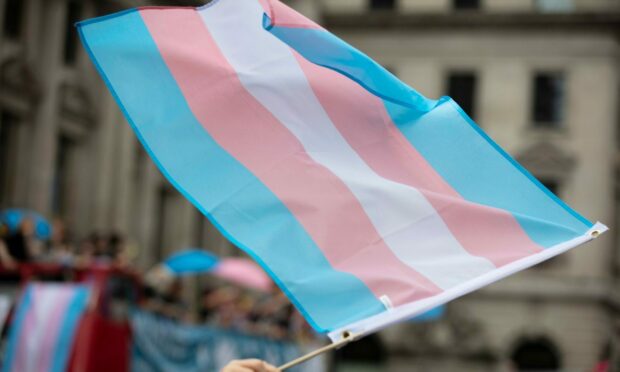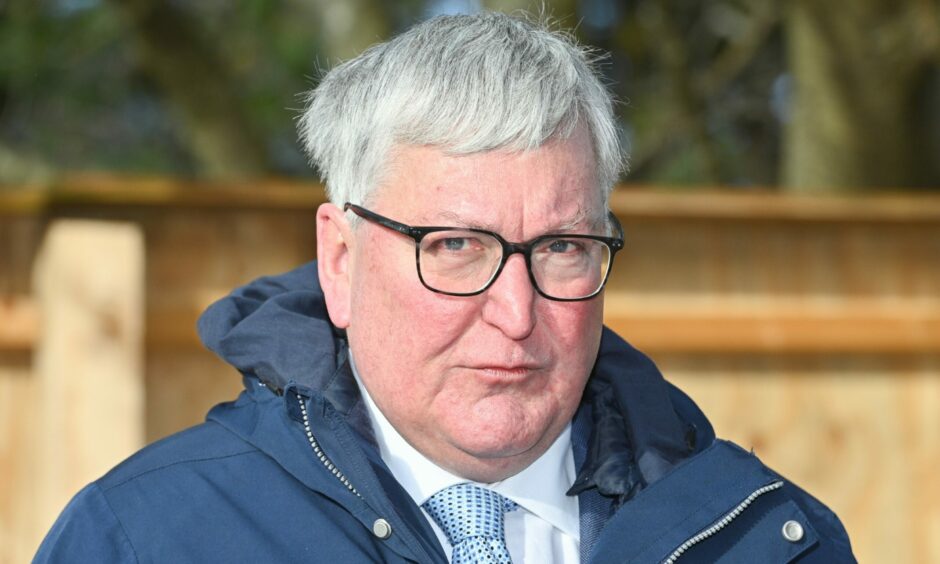A final vote on new laws aimed at making it easier for trans Scots to legally change their gender which has sparked divisions within the SNP has been delayed until tomorrow.
Nicola Sturgeon has already lost one government minister over her gender reform plans.
And veteran Highlands SNP MSP Fergus Ewing has refused to sign up to the changes so far.
What will the law do?
The changes to the law are intended to remove obstacles for transgender people by allowing them to legally self-identify without medical approval.
Transmen and transwomen would also only need to live in their acquired gender for three months instead of two years, followed by a further three months before they get a new birth certificate.
But the proposals escalated into one of the biggest ongoing political rows in Holyrood. Opponents warn the reforms would put women at risk.
Harry Potter author JK Rowling displayed her opposition by wearing a T-shirt branding Nicola Sturgeon a “destroyer of women’s rights”.
Vital or rushed?
Aberdeen-based Greens MSP Maggie Chapman is a strong supporter of the new laws.
She said: “It will remove some of the pain and trauma from a process that many trans people have told us they consider to be bureaucratic and demeaning.”
But Dr Sarah Pedersen, a media and communications professor at Aberdeen’s Robert Gordon University, disagreed with her, claiming the policy had been “rushed”.
She said: “My research into the campaign has highlighted the depth of anger of so many women who have felt that their concerns about the impact of the proposed changes were not only not being listened to but were framed as bigoted.”
What’s happened so far?
The existing gender reform act was passed in 2004.
The first Holyrood vote on the principle of the new gender reforms passed with a comfortable majority on October 28 this year.
A final decision was originally supposed to be reached by tonight, but has now been delayed due to the lengthy amendments process.
A marathon session in Holyrood on the reforms lasted all the way until the lights went out at midnight on Tuesday.
The Tories spent the afternoon trying to controversially hold back the progress of the new laws by arguing SNP ministers should focus their attention elsewhere.
Proceedings were even suspended at one point due to a protest from campaigners watching from the gallery.
An agreement was reached to vote on all amendments by tonight with the final decision now delayed until Thursday afternoon.
How did north and north-east MSPs vote?
In total, seven SNP MSPs across the country rebelled against their party in October.
They included SNP veteran Fergus Ewing, who served under Ms Sturgeon as cabinet secretary for the rural economy and tourism until last May.
Ash Regan had no choice but to quit her post as local communities minister because of her opposition to government policy.
On Tuesday, she again criticised the reforms in Holyrood in defiance of her party’s leadership.
Earlier in December, Aberdeenshire Tory MSP Alexander Burnett suggested the SNP were trying to rush through their proposals to prevent finance chief Kate Forbes from resigning.
Skye, Lochaber and Badenoch MSP Ms Forbes is on maternity leave from her post. In 2019, she was among a number of leading SNP figures who raised concerns over the plans.
SNP Westminster leader Stephen Flynn, an MP in Aberdeen, confirmed he supported the gender reforms.
He said: “Trans people continue to suffer poorer outcomes compared to the rest of the population and this legislation will go a long way to righting that wrong – for that reason I am fully supportive of it.”
Every Tory MSP in the north and north-east – including party leader Douglas Ross – voted against the changes in October.
Every Labour MSP in parliament voted in favour, but dissent against gender reform exists among party veterans.
Former North East politician Jenny Marra – the sister of MSP Michael Marra – has been a vocal critic of the reforms, along with ex-Labour leader Johann Lamont.




Conversation